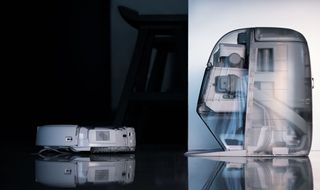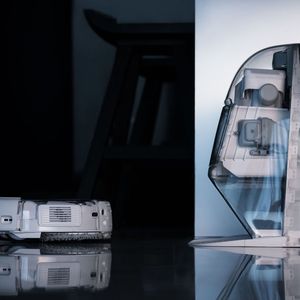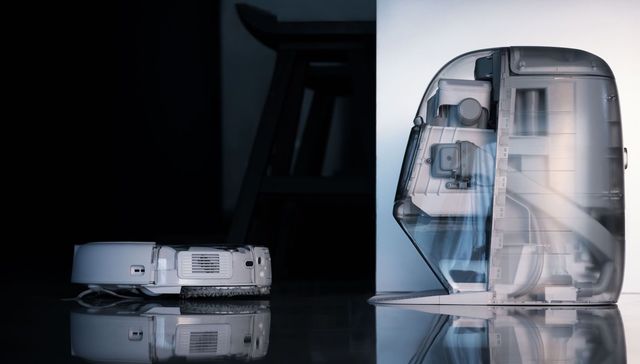by LEI Lei
DJI has officially launched its first line of robot vacuums, the ROMO series, marking the drone maker's entry into the home cleaning market. The new devices—ROMO S, A, and P—are priced from 4,699 yuan to 6,799 yuan and are now available across online and offline channels in China.
Sales were swift. As of 8:20 p.m. on August 6, DJI's ROMO S models had sold out in Shenzhen on JD.com, and thousands of units were reported sold on other major platforms including Douyin.
ROMO applies DJI's drone technologies to the home environment, integrating proprietary perception systems, obstacle avoidance, and intelligent path planning. The company has built the devices on the same core technologies used in its aerial products—such as visual sensors, AI algorithms, and navigation systems—positioning the ROMO series as a premium smart cleaning solution.
"ROMO is not simply a scene shift from air to ground," said ZHANG Xiaonan, DJI's senior director of corporate strategy. "It reflects DJI's long-term thinking about smart home spaces."
The ROMO project has been in development since at least late 2023, when DJI updated its business scope to include intelligent robotics and filed for the ROMO trademark. That trademark, registered in May 2024, covers categories such as robotic vacuums and steam cleaners.

While robot vacuums are not new, DJI's move is seen as a strategic bet on a market still facing structural limits. According to IDC, global shipments of robot vacuums reached 20.6 million units in 2024, up 11.2 per cent year on year, while total sales climbed 19.7 per cent to US$9.31 billion. The average selling price rose to US$452, indicating a shift toward high-end models.
Despite growing demand, the sector's household penetration rate remains below 10 per cent, with product innovation and market maturity still evolving. DJI's entry is being viewed as a bold attempt to break through this ceiling by reframing the category with its tech-driven edge.





